If you missed my 1st post about Yellowstone click>>>>Mountain West Trip:Day in Yellowstone-Part 1
Part 1 is highlighted in Yellow. Part 2 is in Blue.
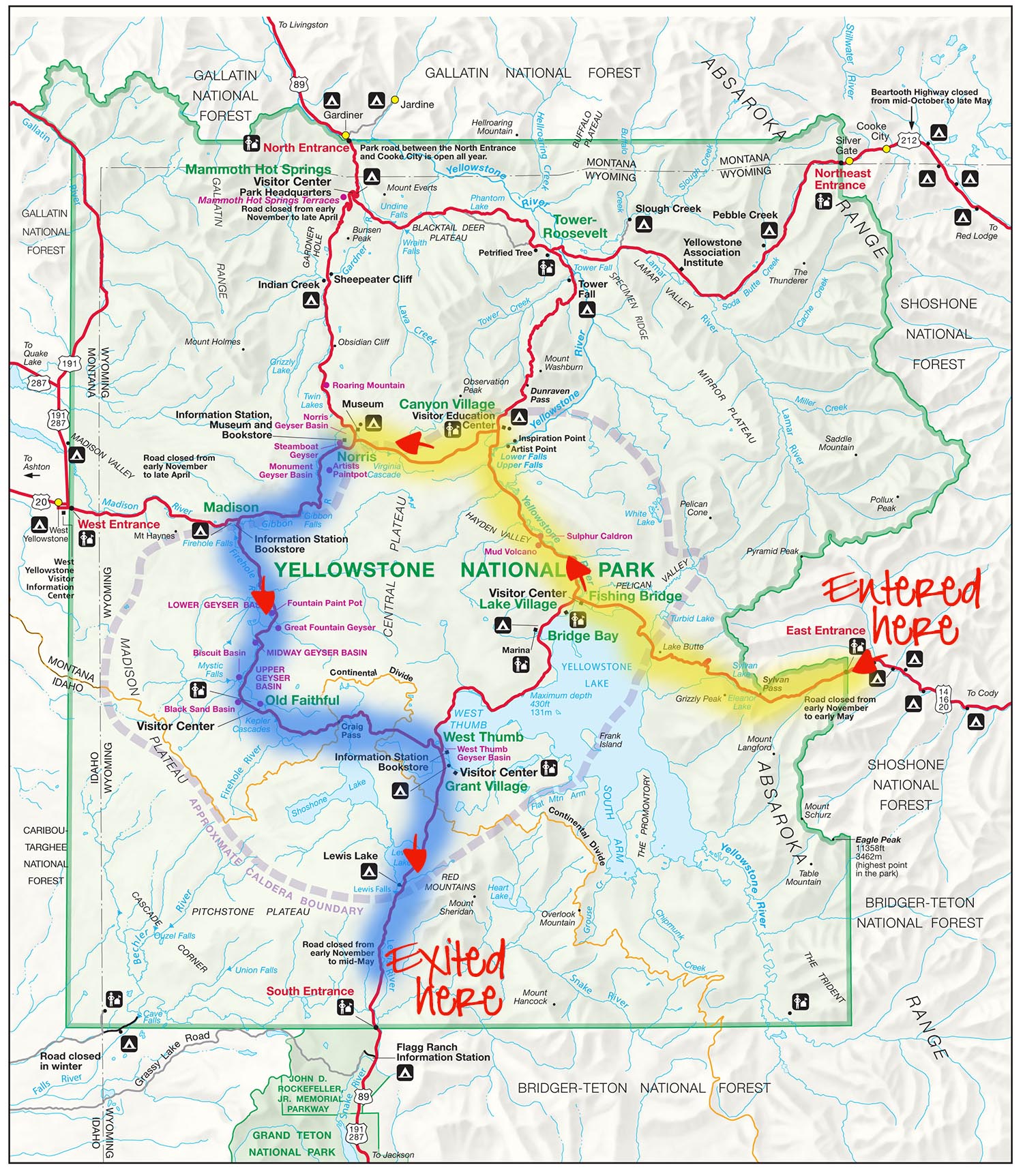 Click map to see larger view. You can click again to zoom in even more. (Original Map Courtesy of https://yellowstone.net/)
Click map to see larger view. You can click again to zoom in even more. (Original Map Courtesy of https://yellowstone.net/)
The next area we hit was Fountain Paint Pots Trail (map). This boardwalk is about a half mile (.8 km) walking loop. Some of the highlights of this area include:
Silex Spring Silex is Latin for silica, which is a major component of rhyolite (extrusive igneous rock), Yellowstone’s most common volcanic rock. The clear blue water tells you that it is very hot. Thermophiles (heat loving microorganisms) cannot survive in water this hot, but they thrive in the runoff water around the spring, which is cooler.

Bacteria Mat These “thermophiles” can survive in very hot temperatures. The colors are give you an idea of the water’s temperature.
Hottest temperatures (as high as 167°F) are yellow or green. As the temperature drops, they become orange, rust, and brown.
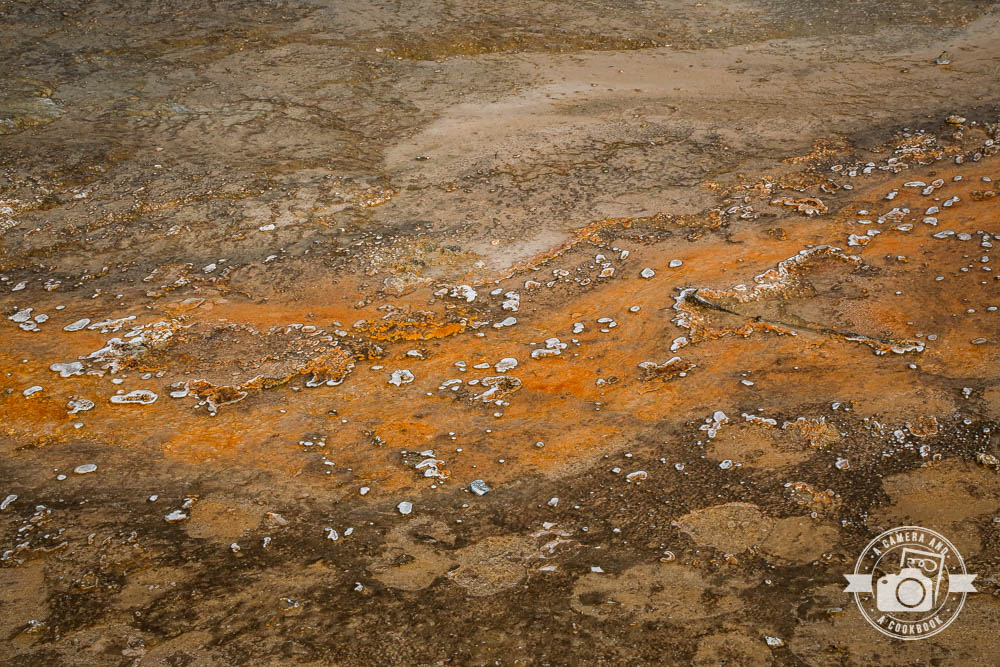
There a bunch of geysers on this trail. Here you see Clepsydra Geyser, which erupts almost constantly.
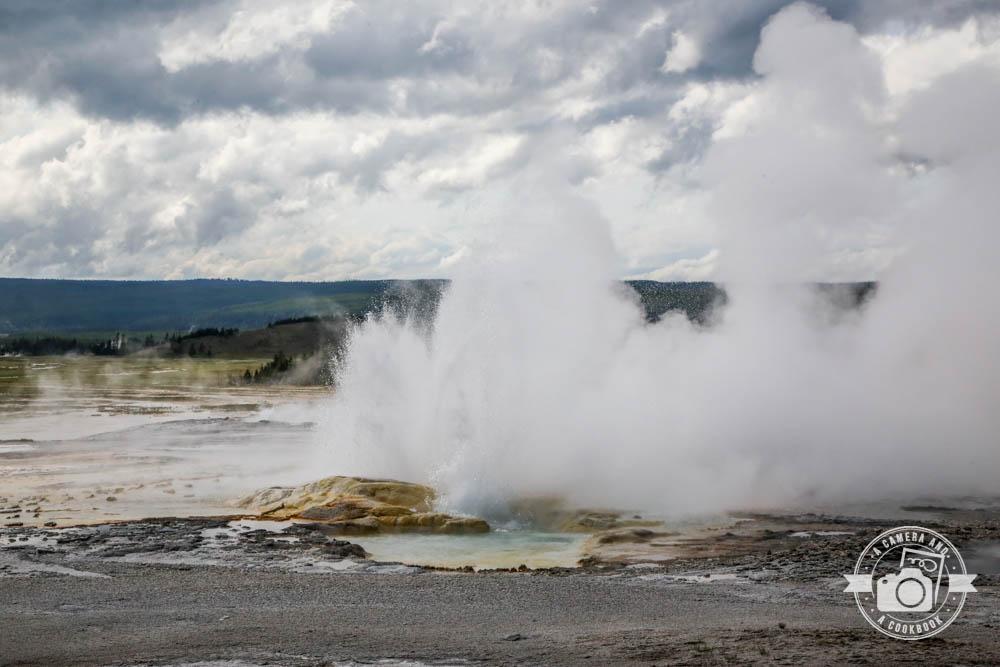
The next major must see is the Grand Prismatic Spring. As you’re driving along you’ll see signs to the Grand Prismatic Springs, which is a must see. This is the iconic rainbow colored hot spring that you’ve probably seen. When you park at the Grand Prismatic Spring Parking Lot, don’t expect to get the above views that most pictures are taken from. I’ll talk more about this in a minute.
This is picture of the boardwalk leading to it and Firehole River which it crosses over. Rafting tours are available at more chaotic parts of Yellowstone!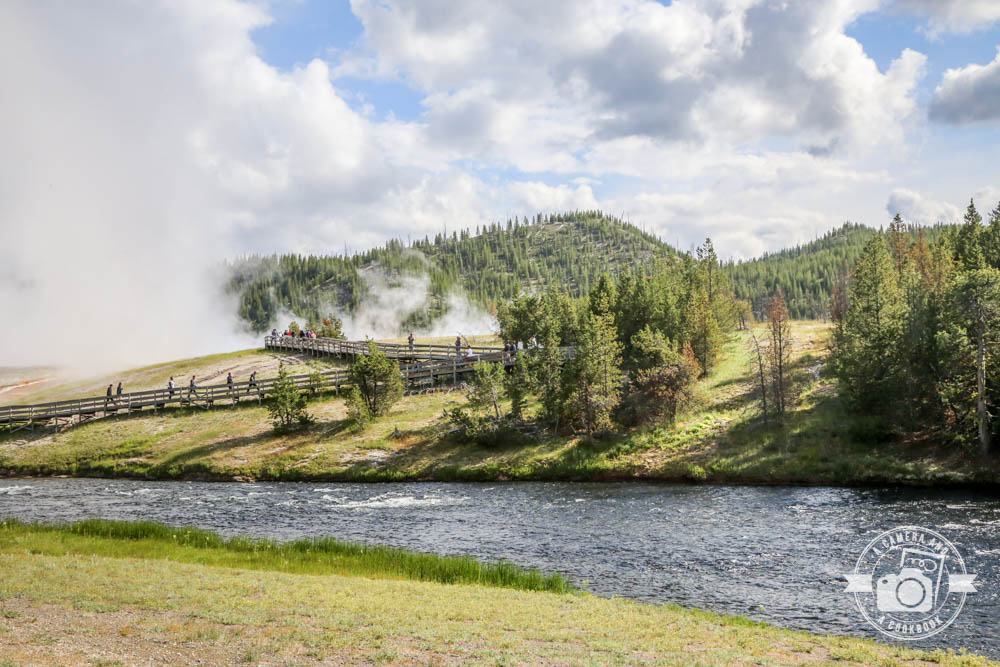
Excelsior Geyser Crater is just beautiful. It’s a dormant fountain-type geyser.
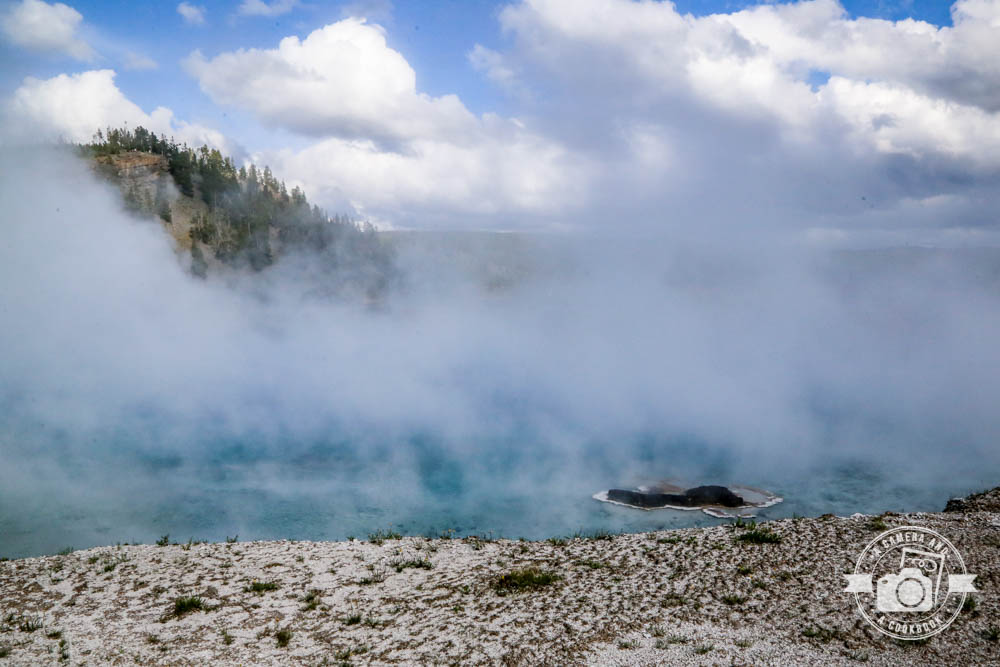
Grand Prismatic Spring is the largest hot spring in the US and the 3rd largest in the world. It is located in the Midway Geyser Basin. I do recommend parking at the Grand Prismatic Spring Parking Lot, because you get a good close up of the detail of the rusty color runoffs from the spring, as well as some other beautiful landmarks.
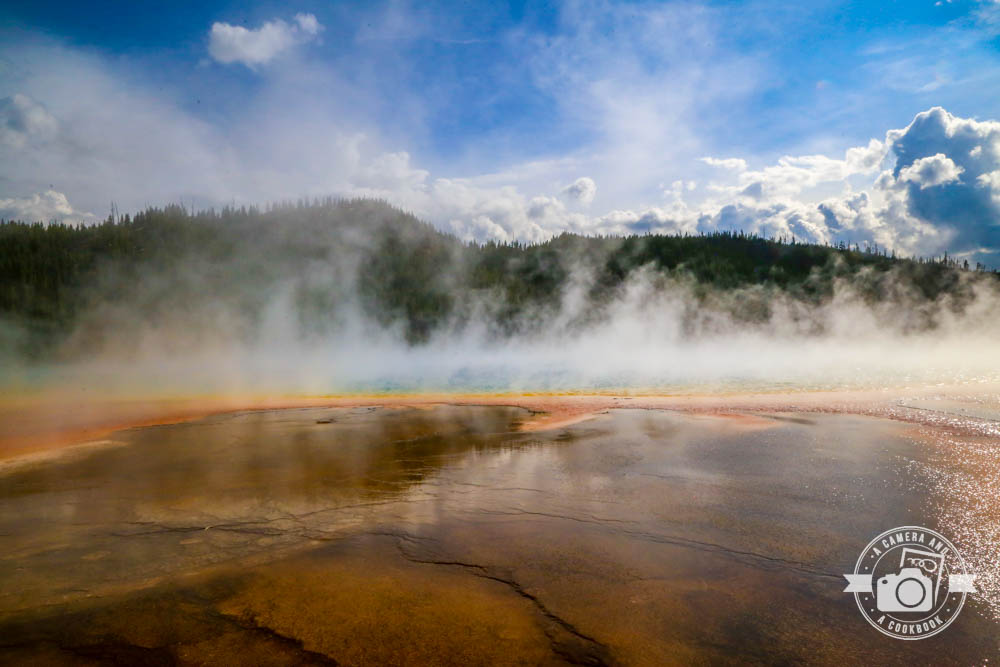
This is the Opal Pool, which is one of the things to see from the boardwalk.
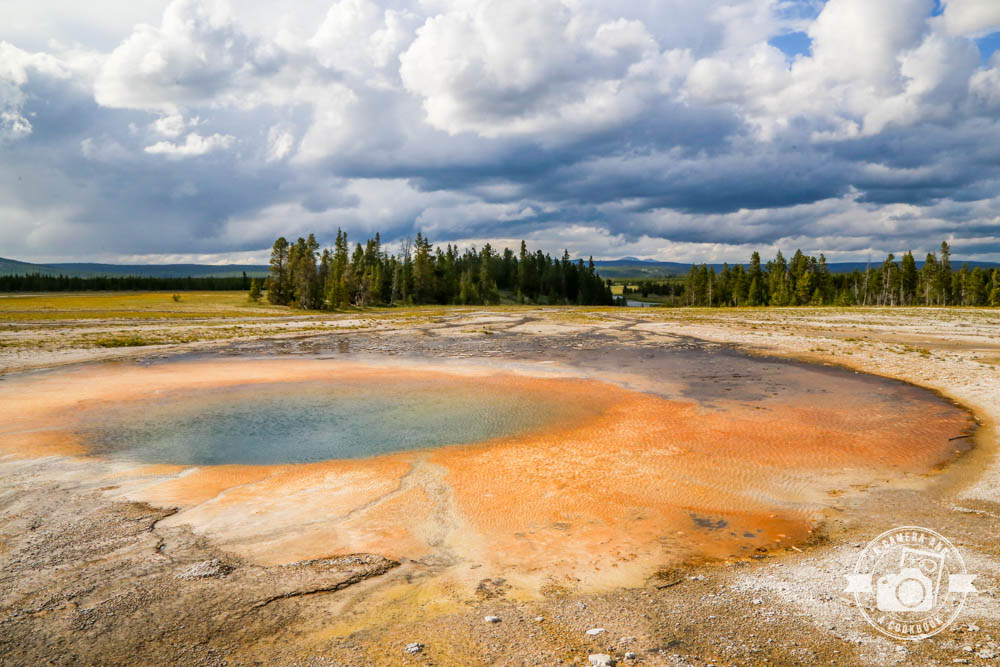
44°31’0.612″ N 110°49’58.236″ W
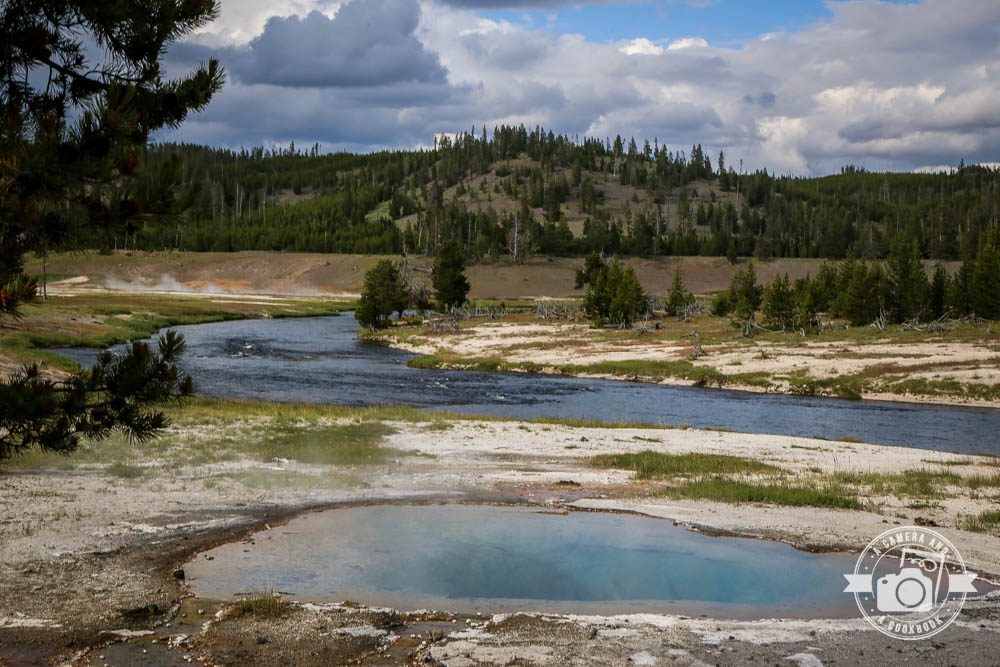
I recommend seeing it from the boardwalk first, but you must hike up behind it to get the views you’ve probably seen on the internet like this one.
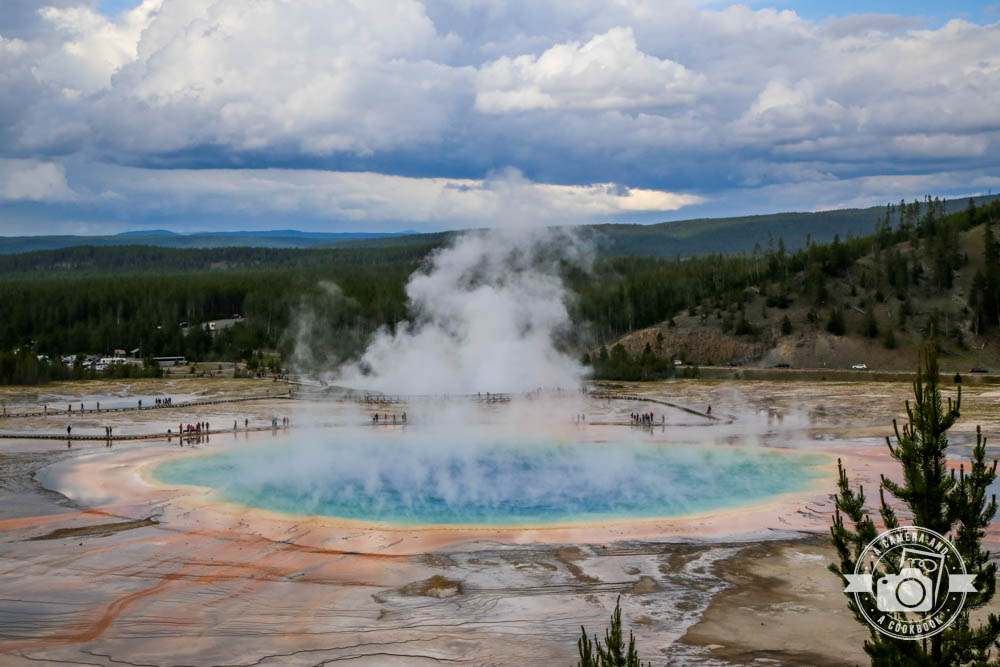
We had to pose in front of course. Perfect profile pic!
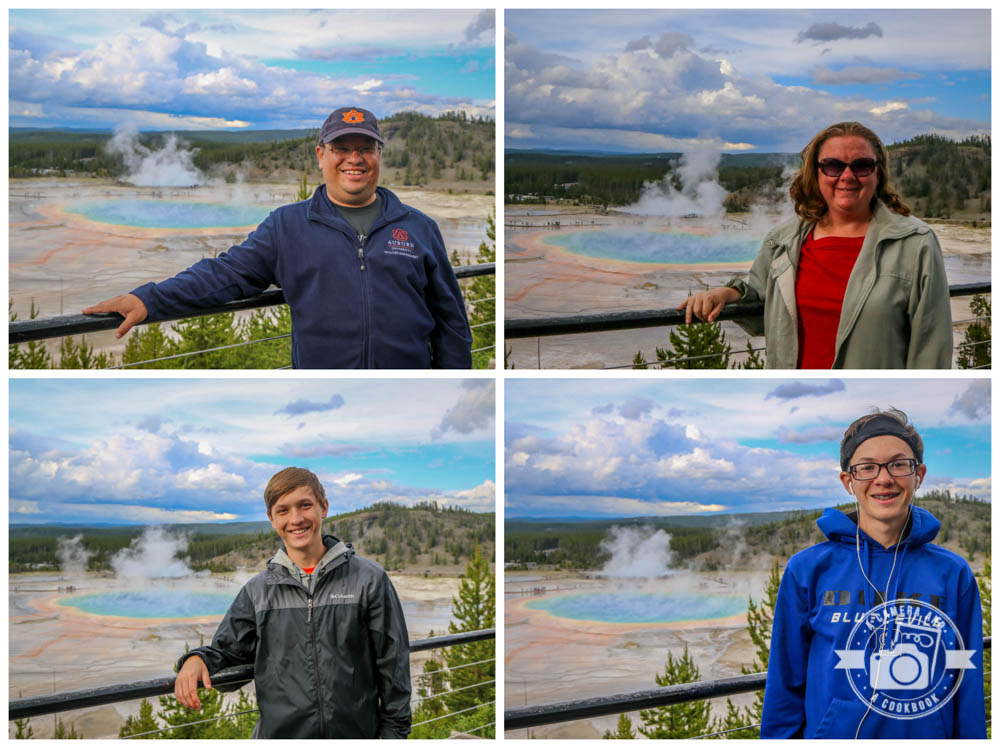
If you want to take the hike to the Grand Prismatic Spring Overlook, you drive past the initial signs (if you are going South like we were) and look for signs to the Fairy Falls. It’s about 1.2 mile (1.9 km) hike ascending about 105 ft. (32 km). I recommend spraying some mosquito repellent before taking this hike.
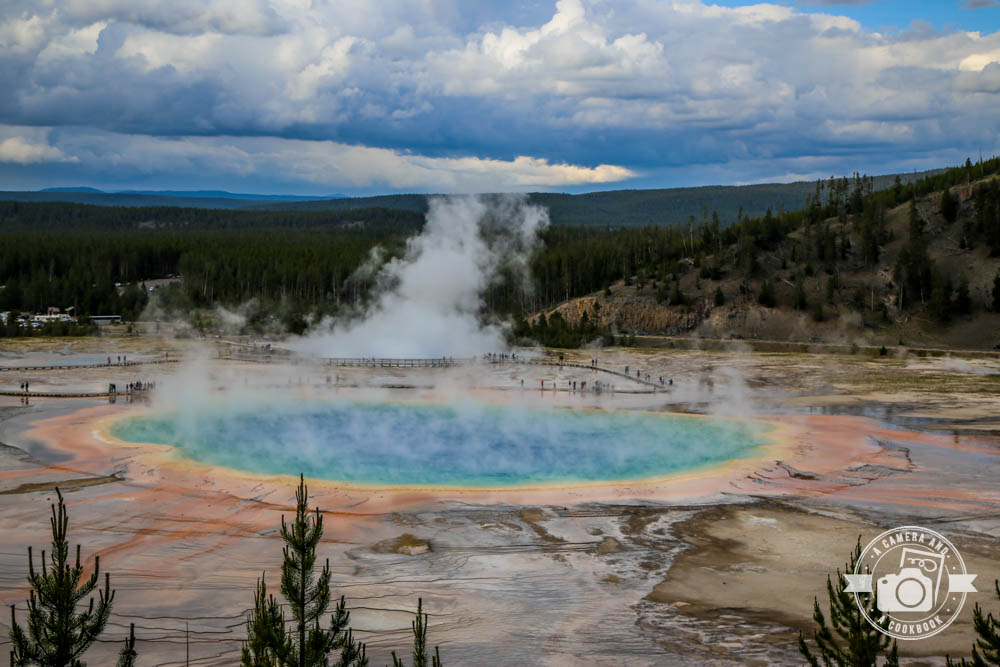
On the way back to the car. Big brother hugging little brother.
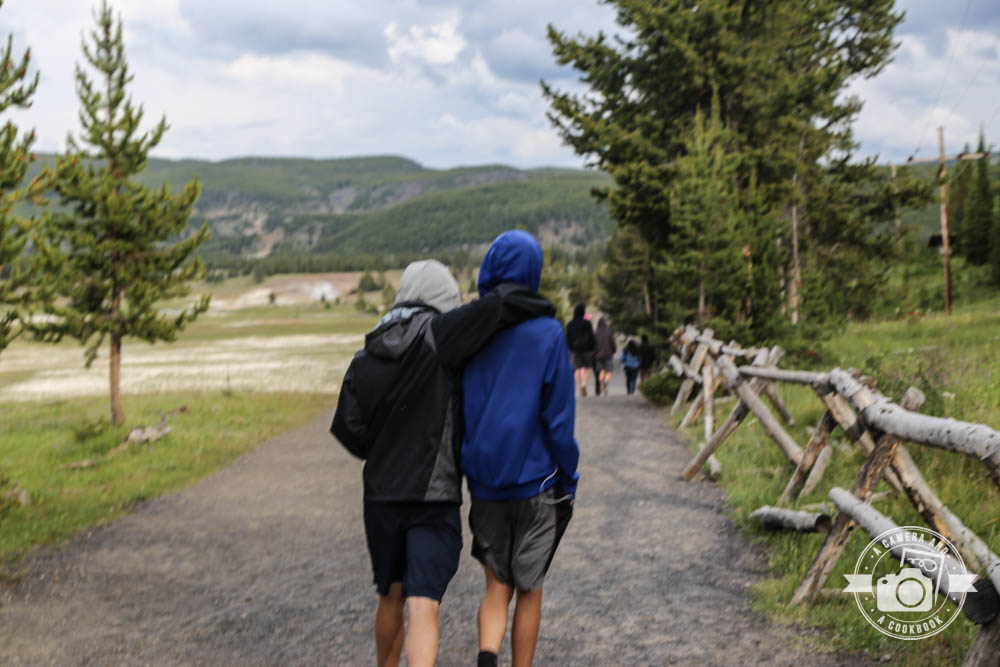
The next area on our tour was the Upper Geyser Basin is Yellowstone’s largest geyser basin (map) and as well as the world’s largest single concentration of hot springs, which occupies nearly one square mile. This basin is located between the Old Faithful area and Biscuit Basin road, which contains several groups of hot springs including over 150 geysers!
This just gives you a quick glimpse of the boardwalk with all the steam coming up from the geysers.
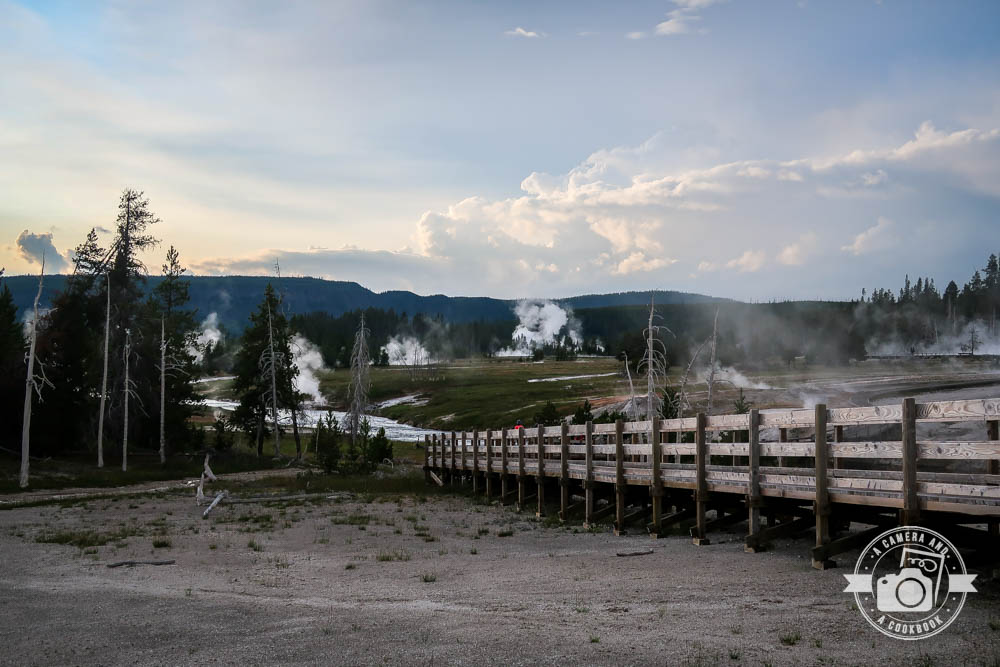
The Upper Geyser Basin is where you find Old Faithful Inn, which is positioned right near Old Faithful, of course. This is a must see, not only from the outside, but don’t skip going inside. It’s beautiful.
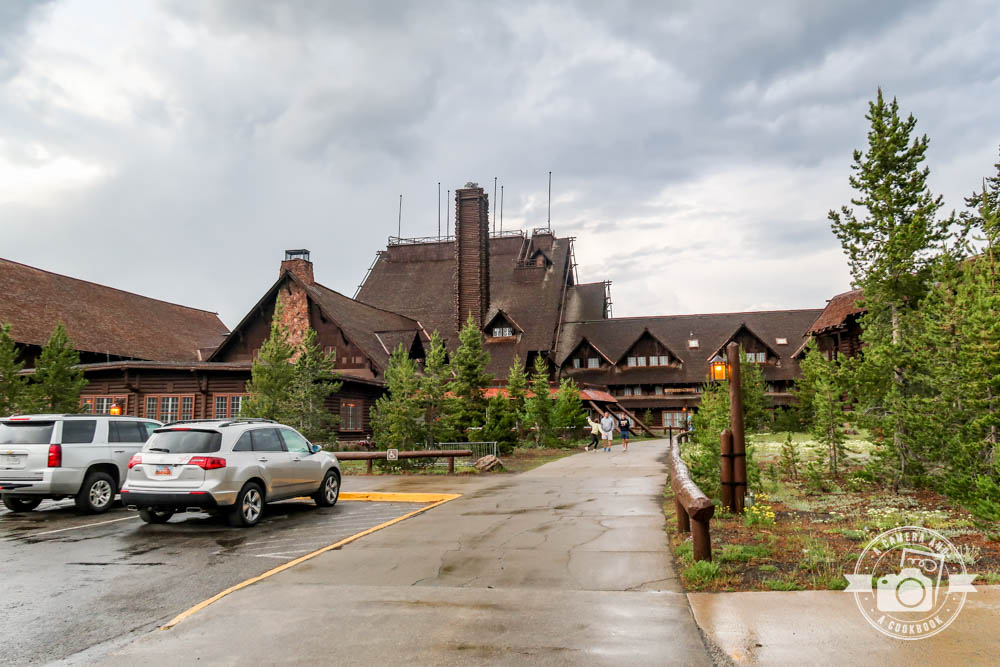
There’s Old Faithful. Not far from the Inn is the Old Faithful Information Center. You can go in there and find out when they expect this timely geyser to erupt so you don’t miss out!
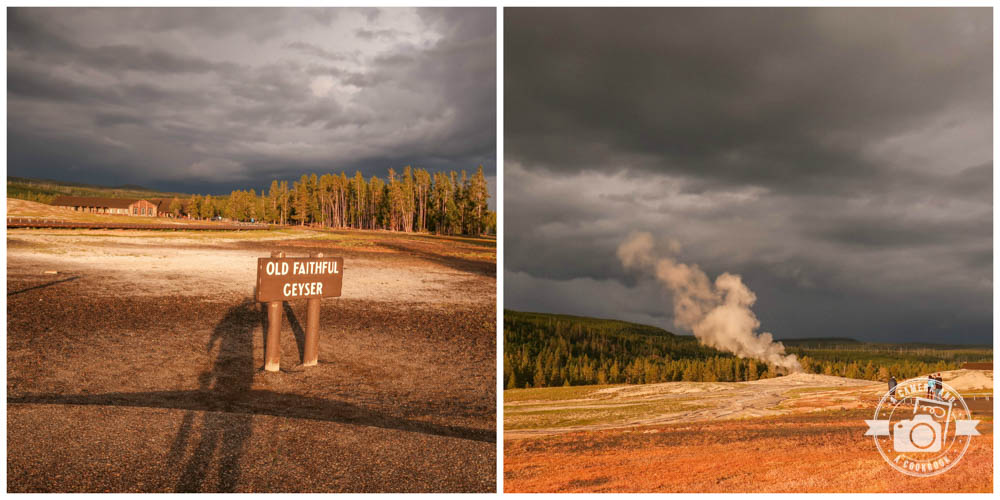
When we got to the area of Old Faithful, we had maybe an hour before she was supposed to blow. So we walked a good portion of the Upper Geyser Basin and make our way back with a few minutes to spare. She went off at 7:17 pm, which I believe was within a minute of the prediction.
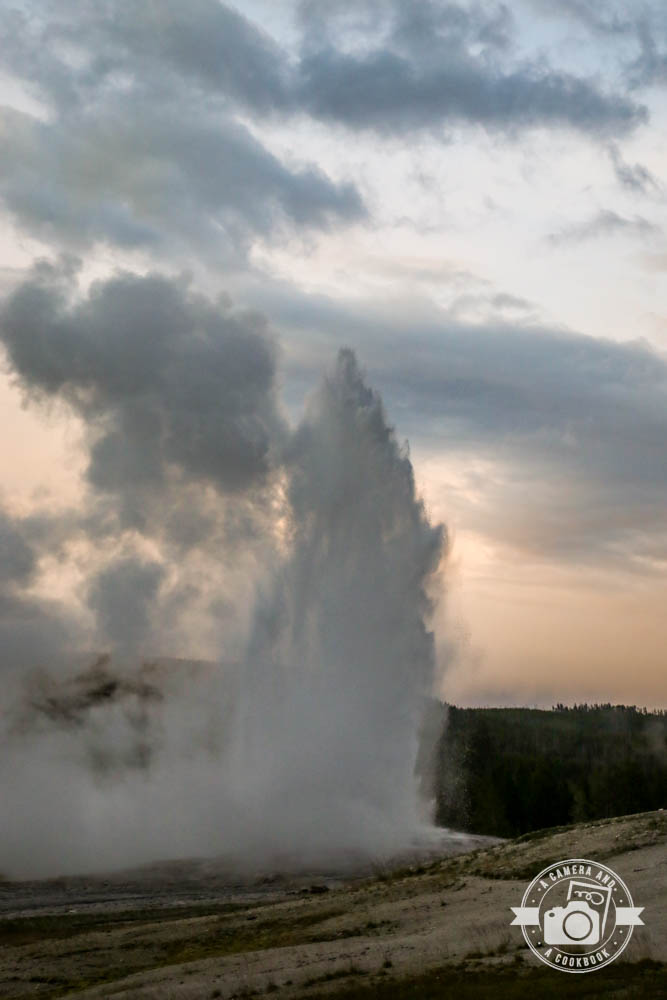
We stood on the side from where the wind was blowing. I recommend getting there a little early and figuring out which was the wind is blowing, so you don’t have all the steam blowing off to the side. If you stand with your back to the wind, you will get a more clean shot of Old Faithful without the disruption of the steam, because it will be behind the water spout.
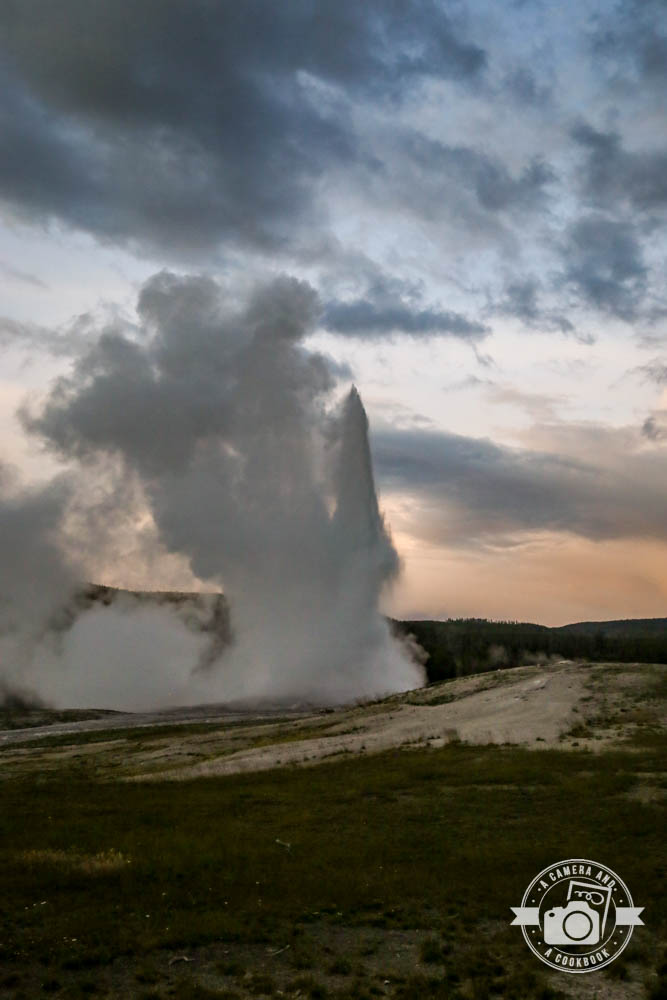
Kepler Cascades. They are about 2.6 miles south of Old Faithful. This magnificent fall is 150 feet of multiple drops.
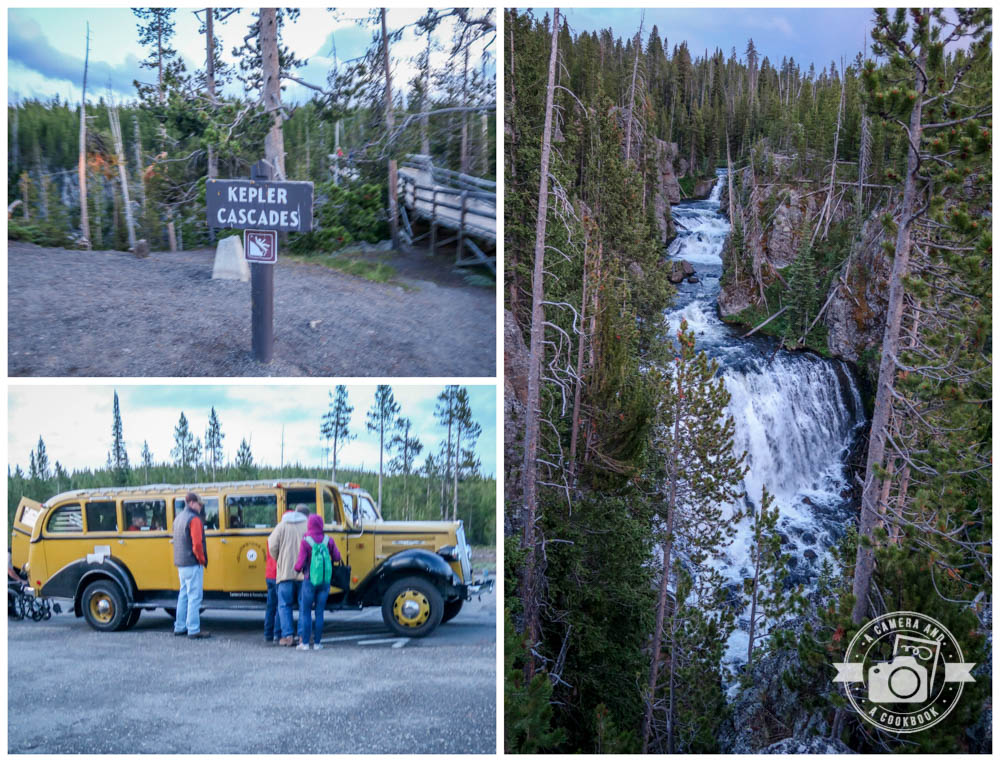
Our final stop inside Yellowstone was at the Continental Divide.
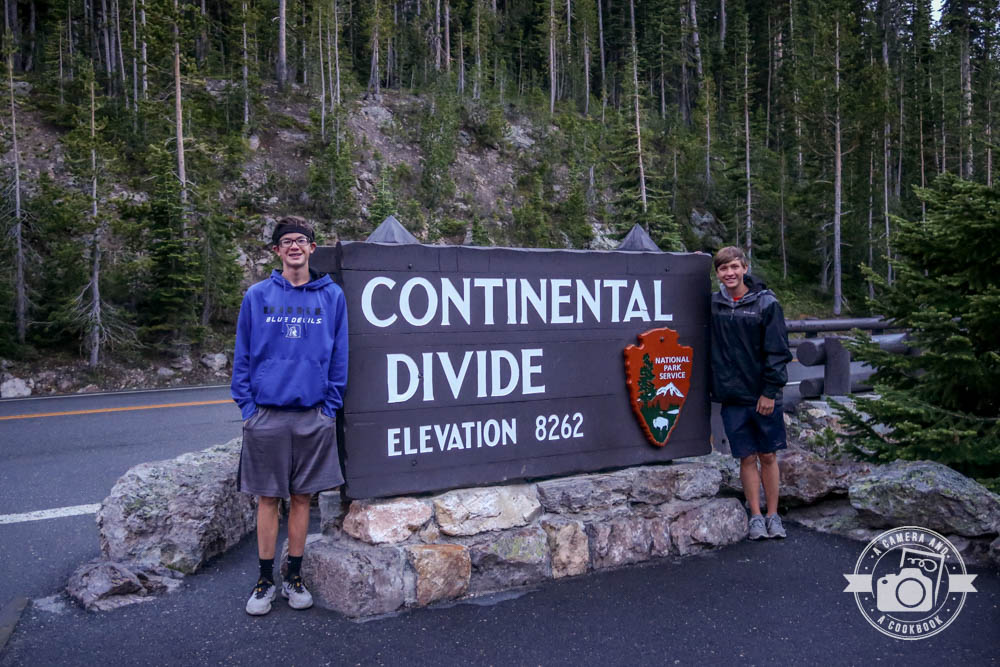
From there we exited through the South Entrance and drove to our sleeping spot for the night, which was Headwaters Lodge at Flagg Ranch.
To see all the pics from this day>>>Day in Yellowstone Pics
See full list of posts from this trip>>>Mountain West Trip
Camera Info:
Canon EOS 6D DSLR Camera
Canon EF 24–105mm f/4L IS II USM Lens
Canon PowerShot G7 X Mark II
iPhone 7

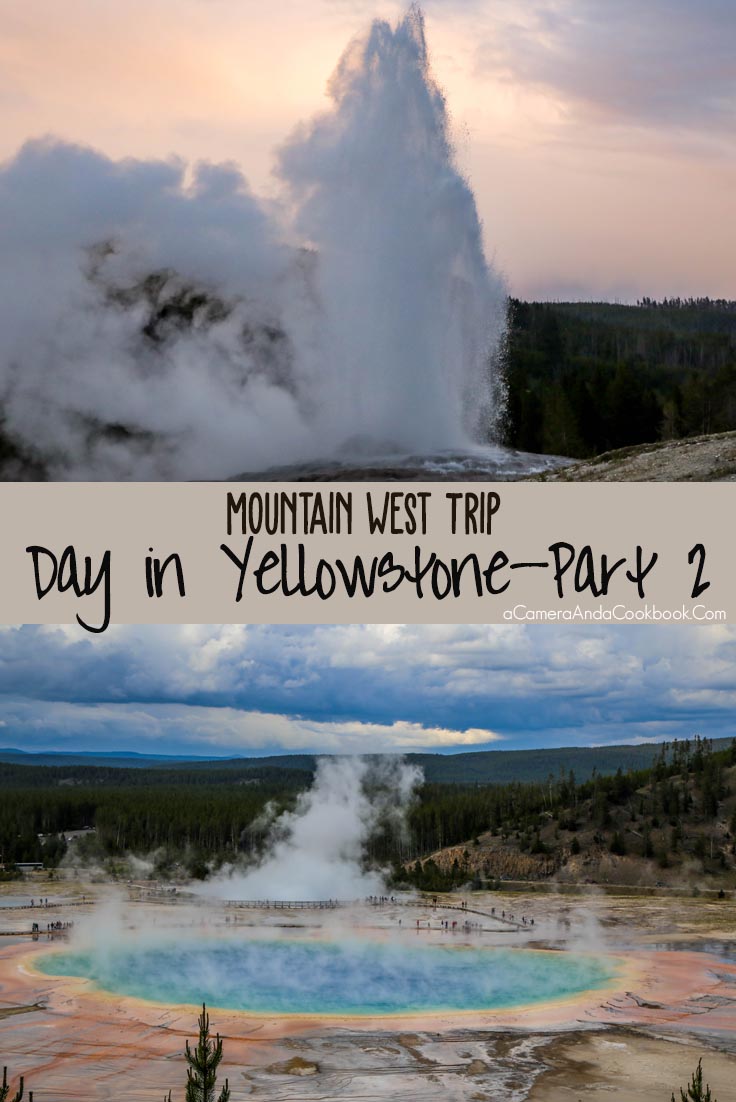
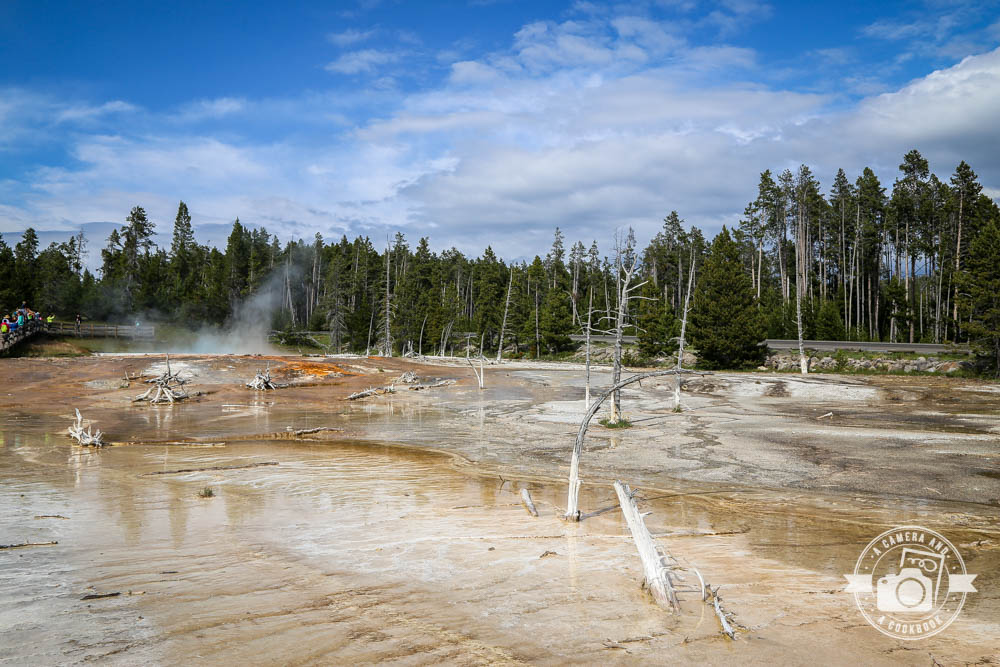
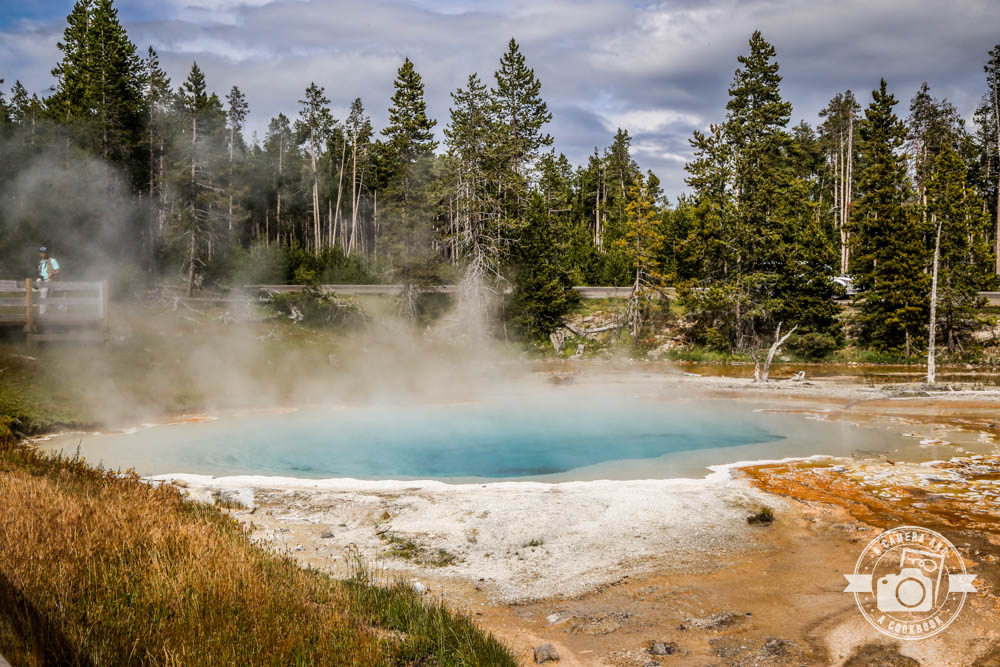
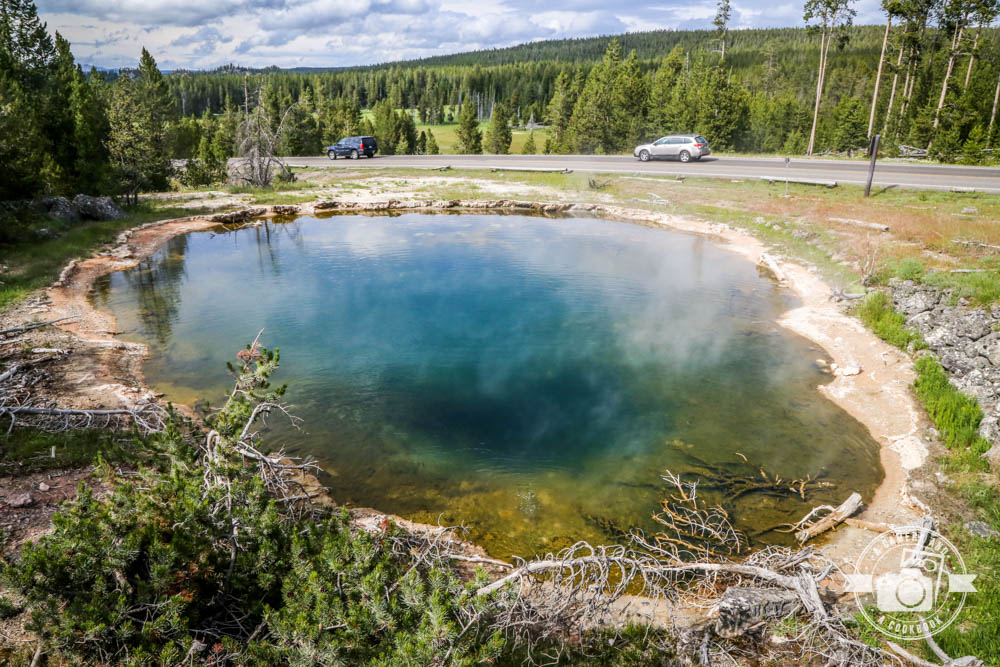
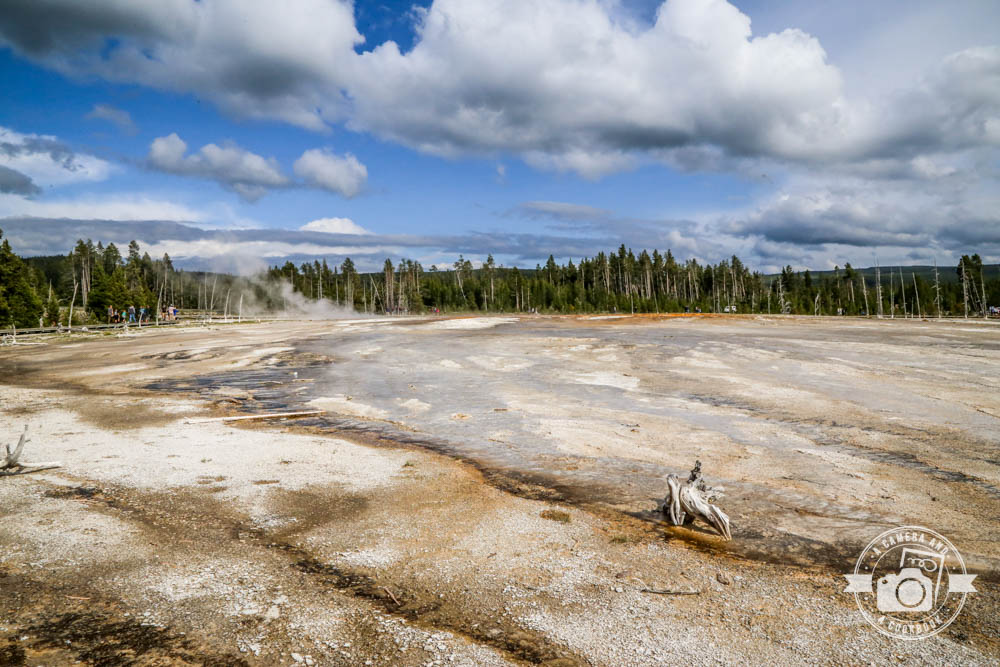
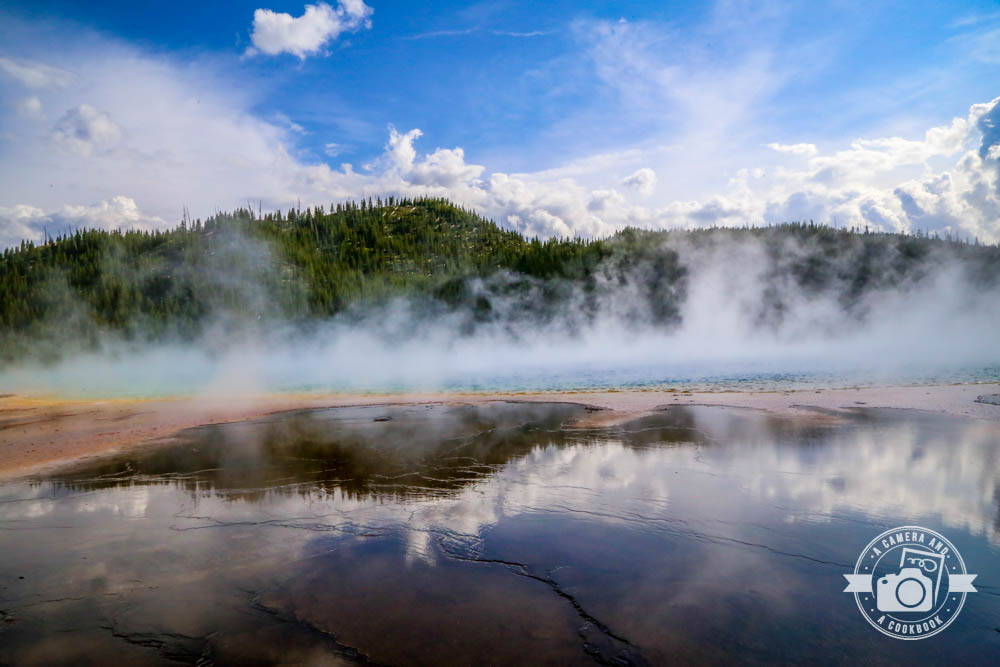
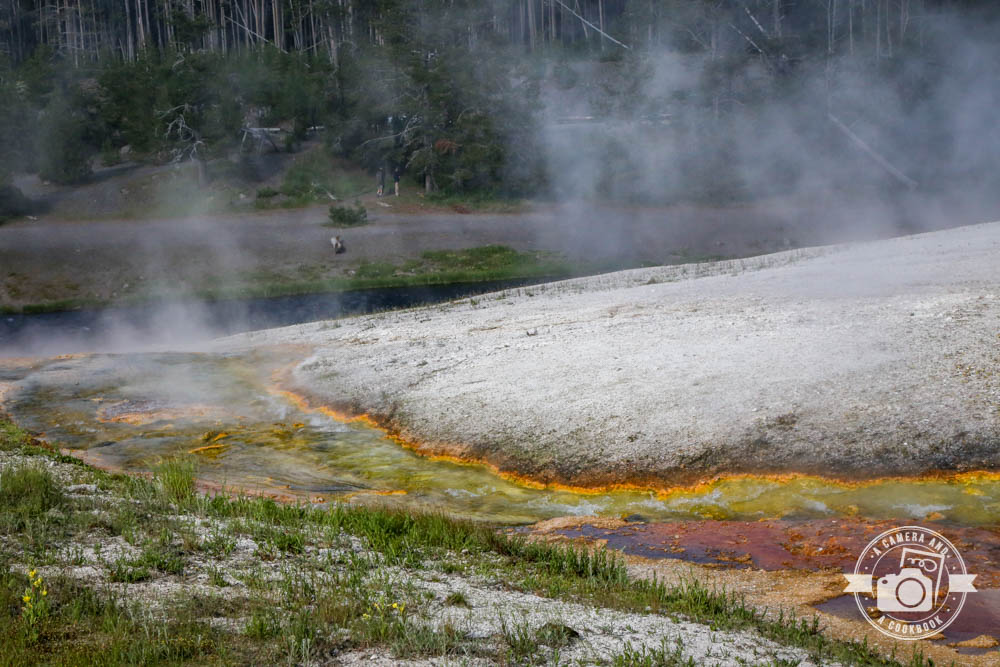
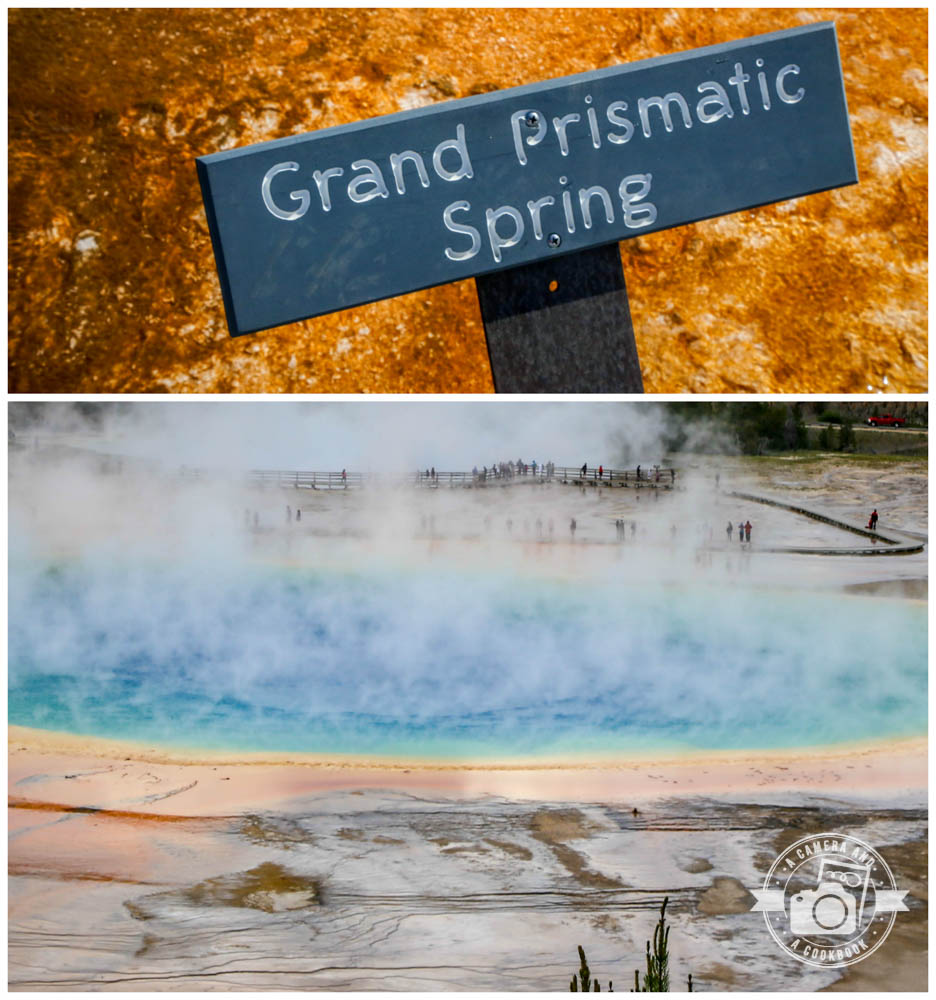
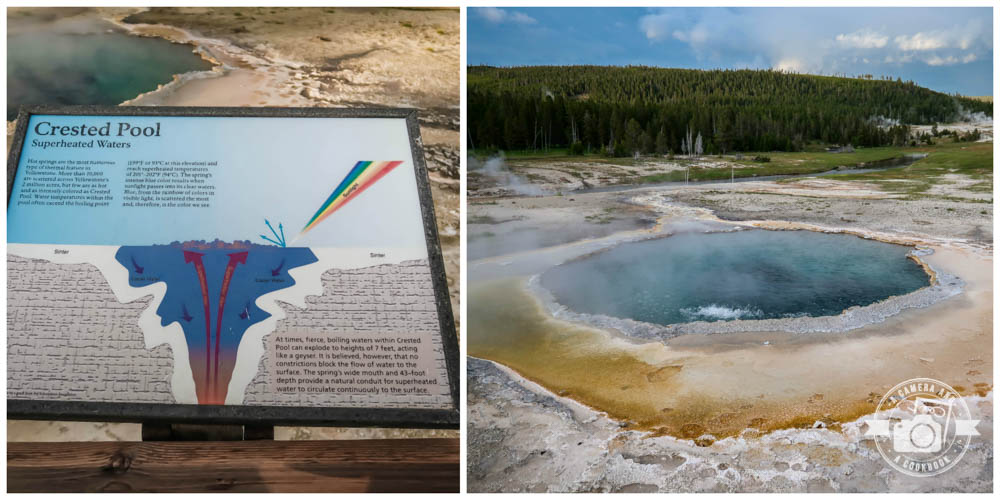
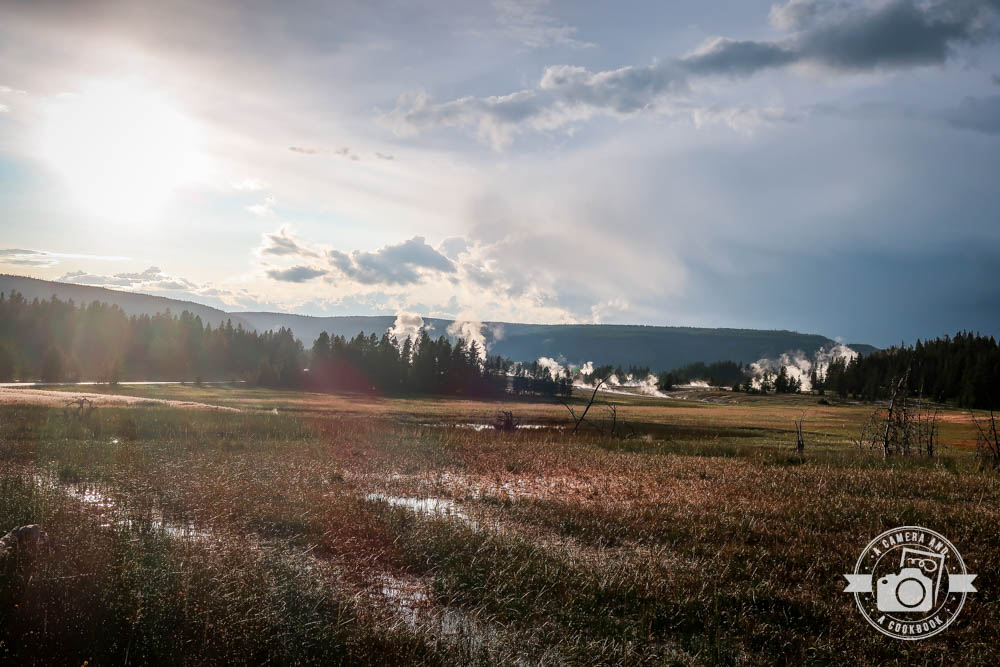
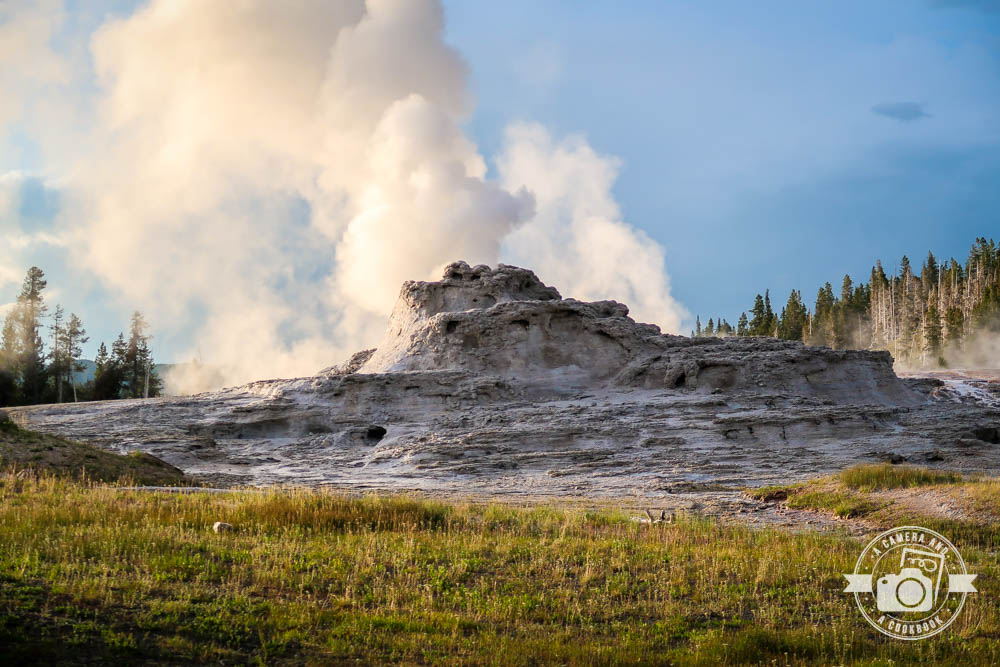
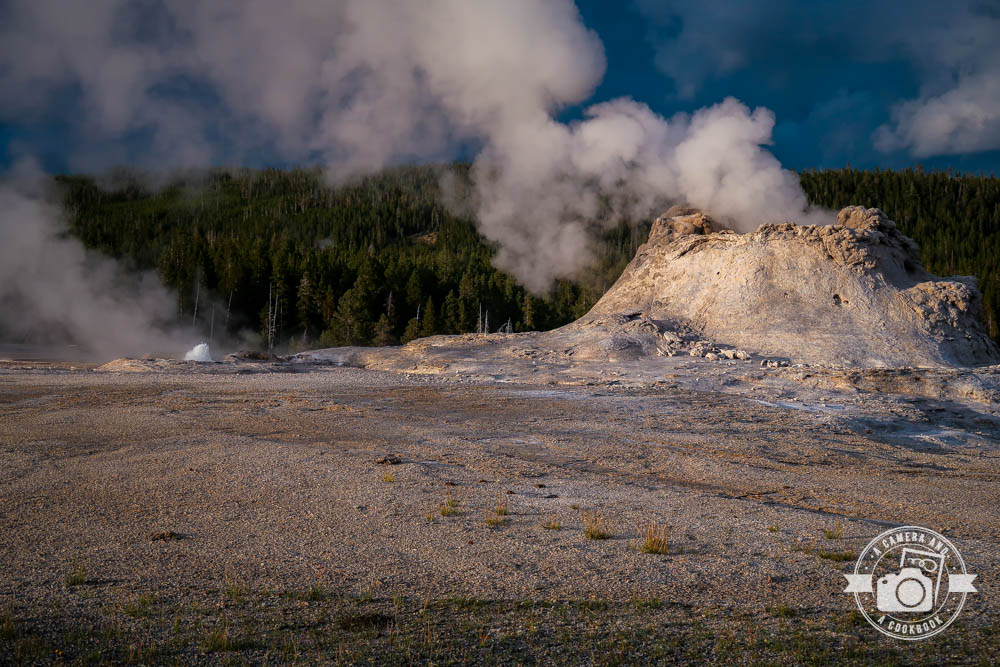
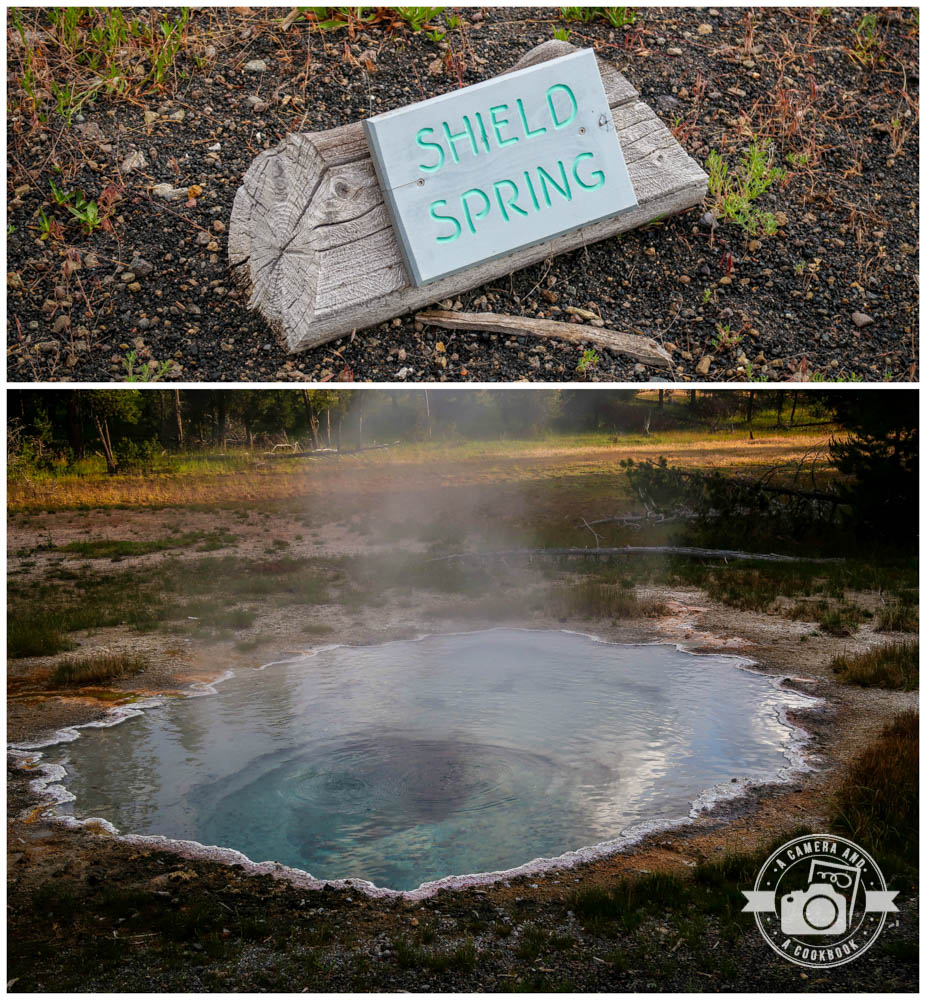
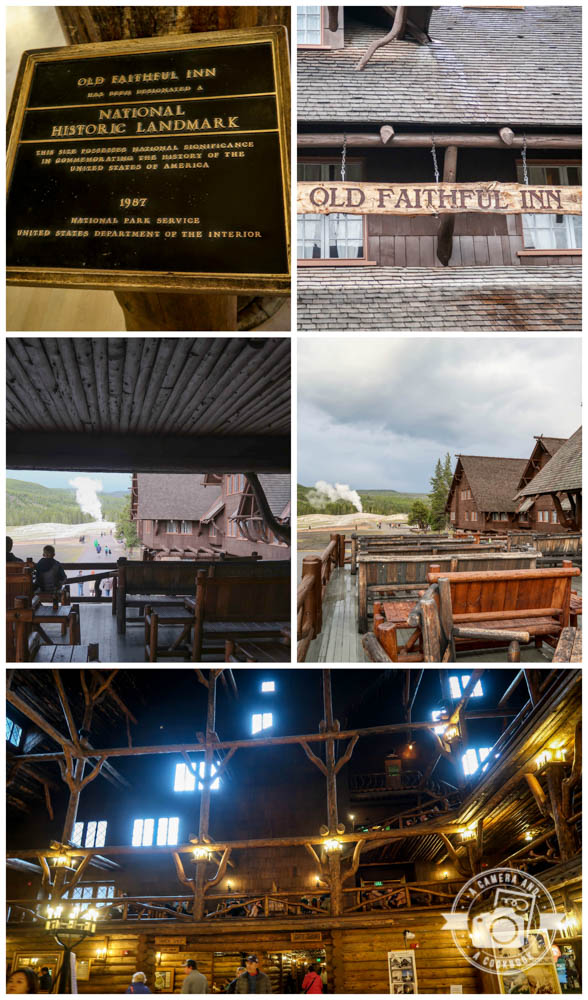
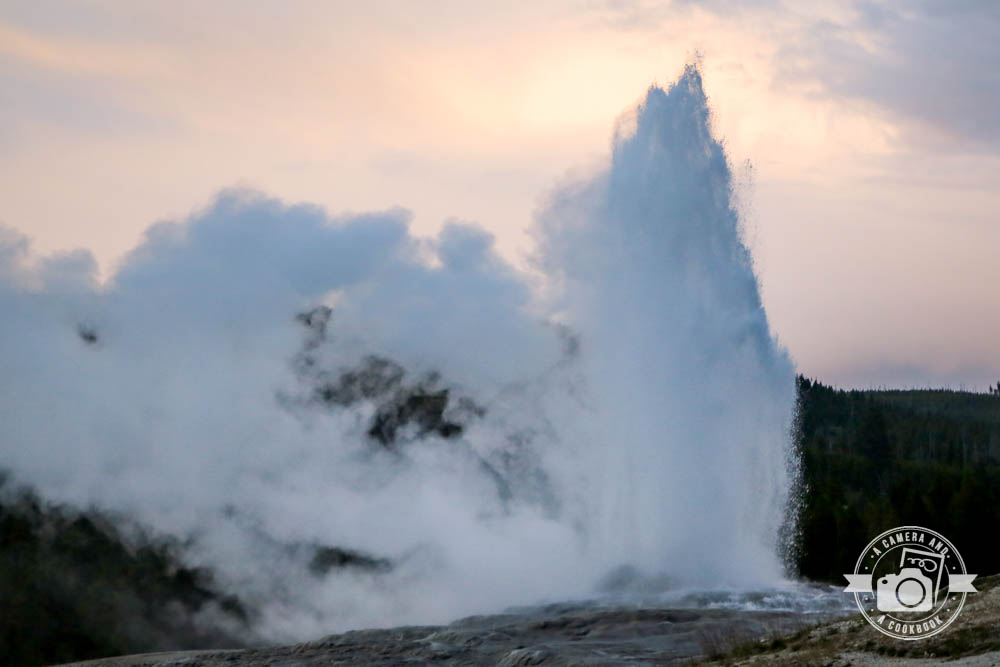
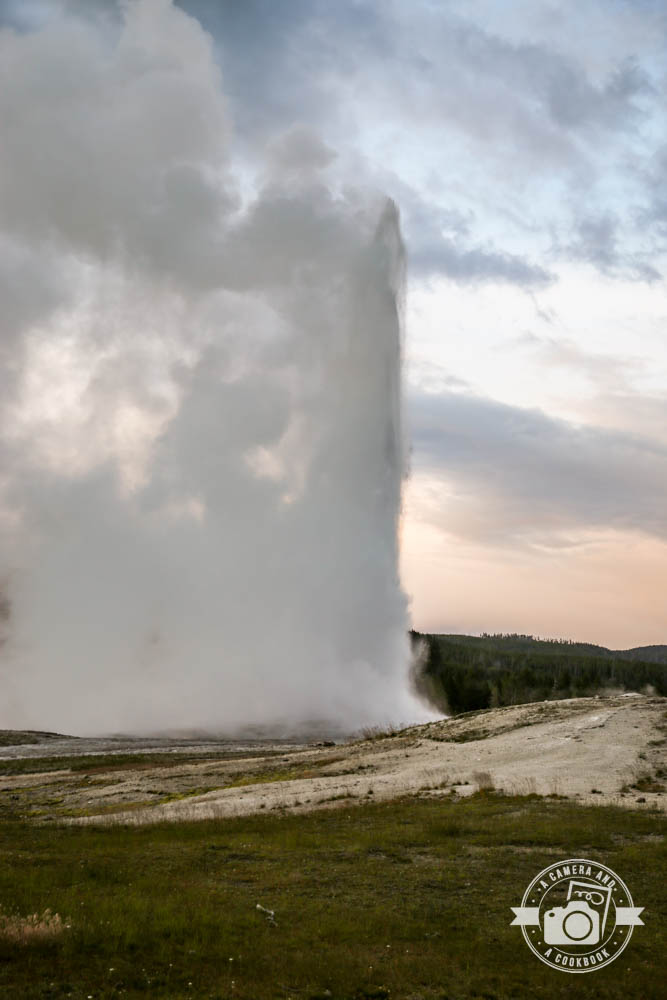

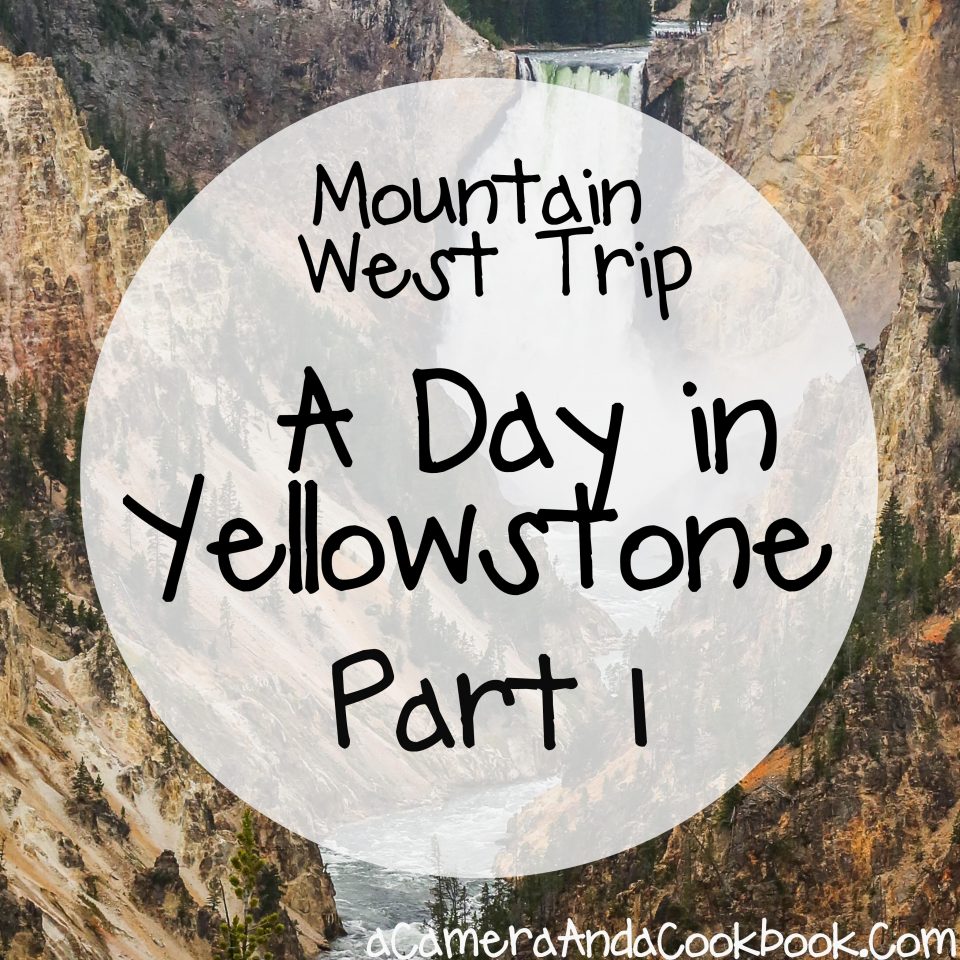
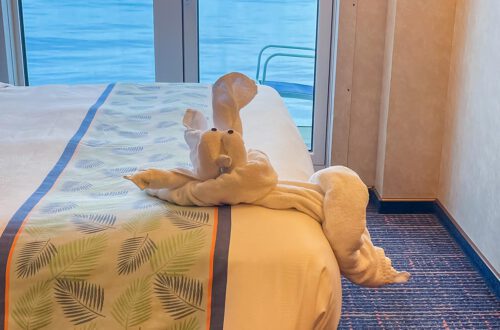
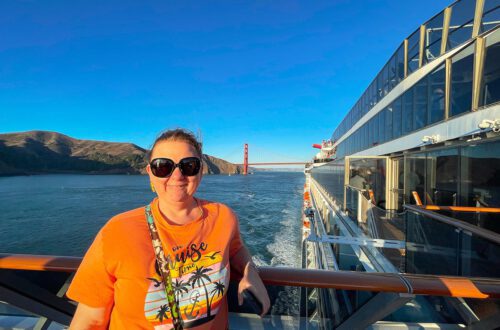
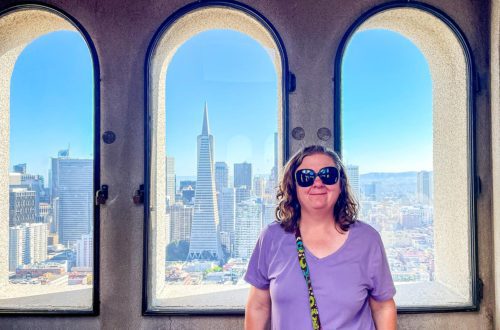
Wow! You have some really beautiful photos. I am dying to see more National parks and am so bummed that we have to put any travel plans on hold for now. I definitely think this park will be moving to the top of my list though.